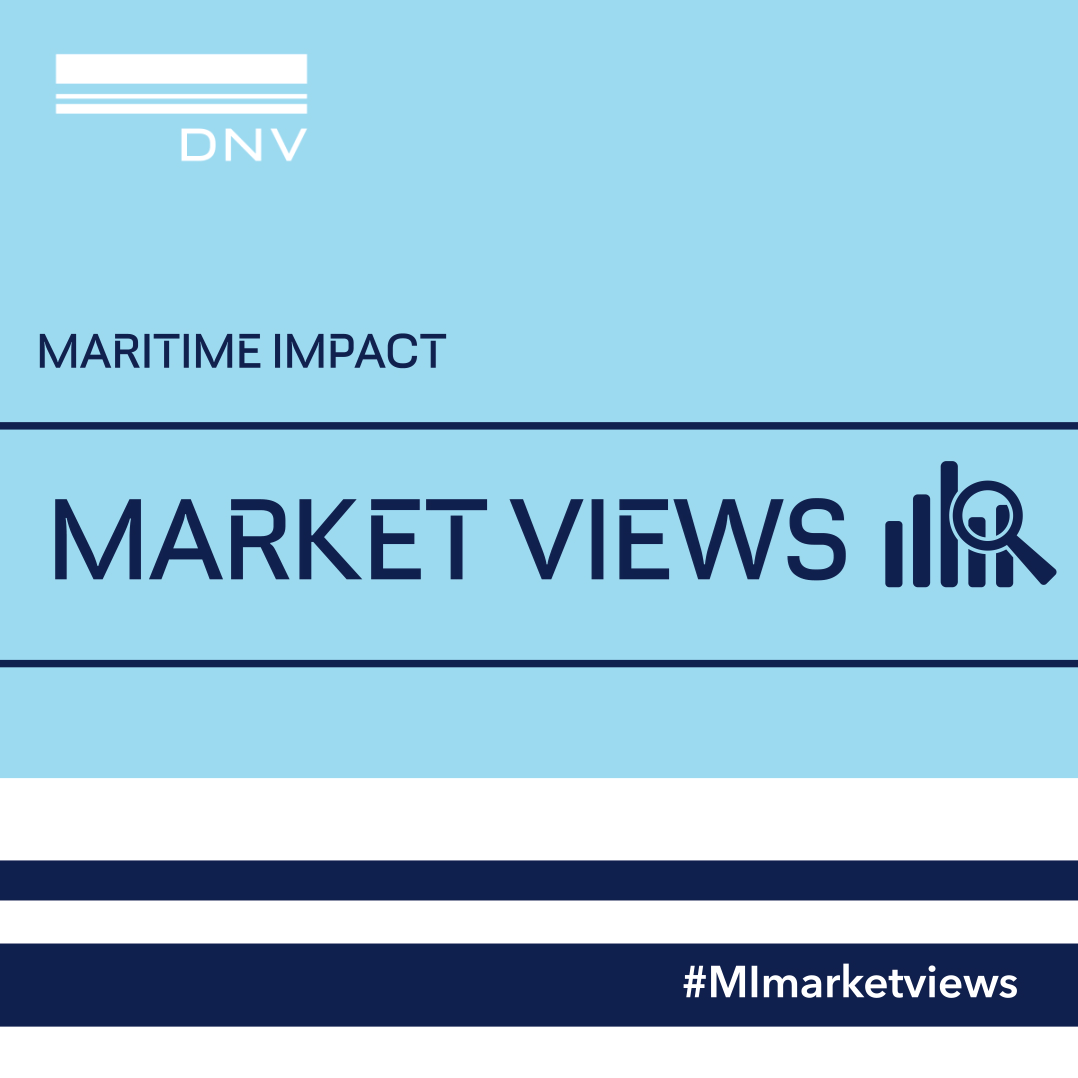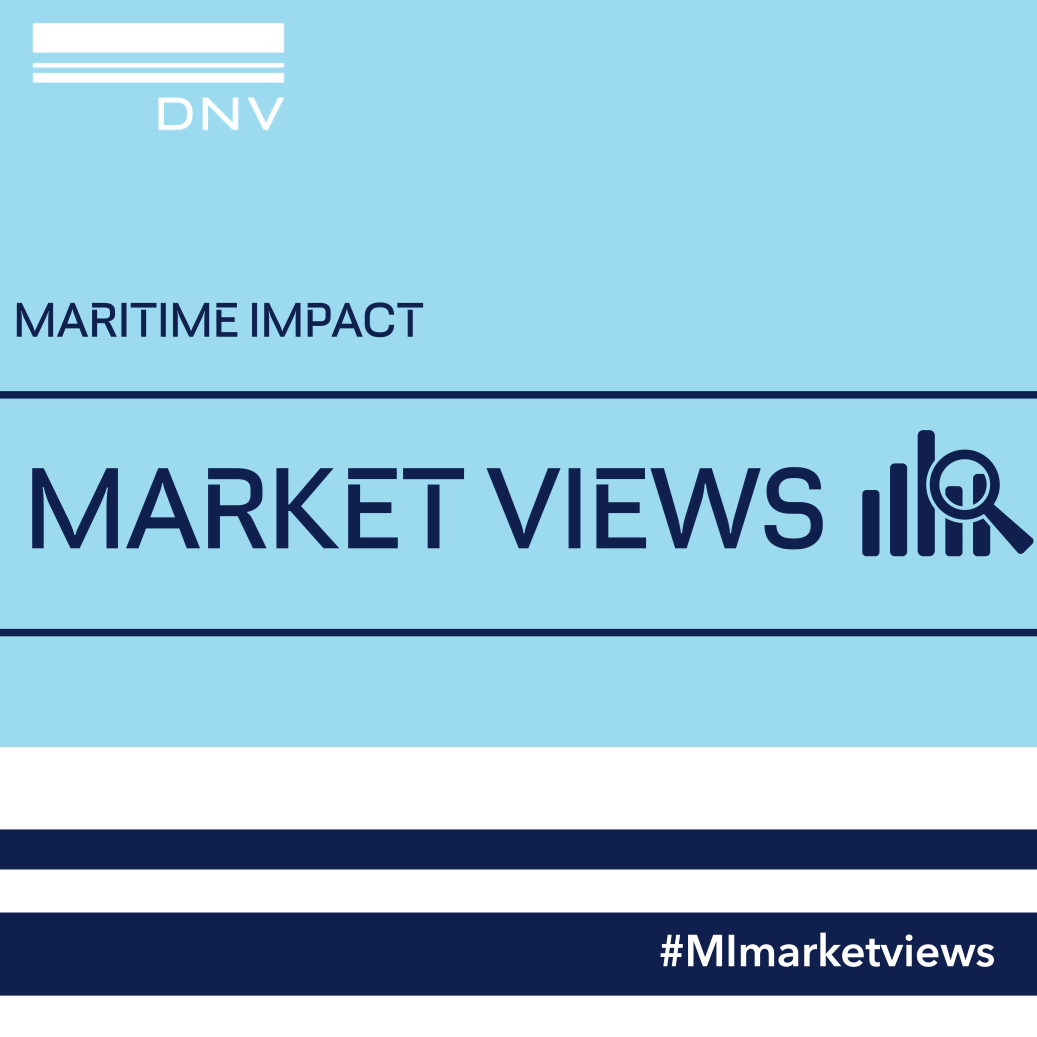Discover Maritime Impact
Maritime Impact

Maritime Impact
Author: DNV Maritime
Subscribed: 50Played: 545Subscribe
Share
© All rights reserved
Description
DNV’s Maritime Impact explores the latest environmental policies and legislation impacting the global shipping industry and discuss the key actions decision makers must take if they are to remain compliant in future.
53 Episodes
Reverse
Wind assisted propulsion systems (WAPS) are among the promising green technologies helping shipping to decarbonize. Host Eirik Nyhus is joined by WAPS specialist Johanna Tranell to discuss this technology’s potential, important operational and design considerations, its performance measurement and how it can help to deal with current environmental regulations.
The EU ETS has introduced new liabilities and responsibilities for maritime stakeholders. Host Eirik Nyhus and DNV Maritime Business Development Manager, Helge Hermundsgård, discuss the practical ramifications of some key features that have a significant commercial impact and how to address them.
What do ship operators need to do to ensure compliance for the FuelEU Maritime regulation? Host Eirik Nyhus provides a lowdown on the legislation that has been somewhat overlooked by the European shipping community and examines the key challenges ahead.
What were the key greenhouse gas discussions at the IMO’s MEPC 81? DNV’s Maritime Impact podcast is back and host Eirik Nyhus examines the leading proposals for the technical and economic measures for the IMO’s decarbonization regulations.
In the final episode of DNV’s Maritime Impact podcast in 2023, Eirik Nyhus is joined by DNV’s Cristina Saenz de Santa Maria to discuss what the wider shipping industry can learn from Singapore, the leading maritime decarbonization hub, as it seeks to meet the IMO’s ambitious net-zero targets.
In the latest episode of DNV’s Maritime Impact podcast, Eirik Nyhus speaks to Tom Strang from Carnival Corporation about the impact of new GHG regulations on the cruise sector and whether new regulations will lead to the full decarbonization of shipping.
In the first episode of series five of DNV’s Maritime Impact podcast, Eirik Nyhus assesses the state of play for the EU ETS and the FuelEU Maritime. With legislative agreement secured, what implementation work is left before the regulations come into force, and what preparation work can be done now?
In the second episode of DNV’s Maritime Impact: Market Views videocast, Jakub Walenkiewicz is joined by Richard Matthews of Gibson Shipbrokers to consider the impact of energy security – or insecurity – on key shipping markets. Discussing the effects of war in Ukraine, Jakub will also provide the latest analysis on newbuilding markets.
In this episode of DNV’s Market Views videocast, host Jakub Walenkiewicz is joined by Eirik Nyhus to unpack the impact of the adjournment of the IMO’s Net-Zero Framework and what the new regulatory uncertainty means for the maritime market. They also discuss the guideline package that will be worked on until the next vote for adoption.
In this episode, host Eirik Nyhus examines Norway’s upcoming zero-emission rules for passenger ships in UNESCO fjords, their strict fuel requirements, and the broader implications for cruise tourism and compliance.
In this episode, host Eirik Nyhus unpacks the unexpected outcome of the latest IMO MEPC meeting, and explores why key decisions were delayed and what this could mean for the global shipping’s decarbonization efforts.
In this special podcast episode, guest host Øyvind Sekkesæter is joined by Andreas Enger, CEO of Höegh Autoliners to discuss their bold move toward ammonia as a scalable, zero-carbon fuel and what they have done so far to prepare technically and secure future demands.
In his last episode before the summer, Eirik Nyhus provides a round up of global greenhouse gas regulatory action, cutting through the complexity of maritime decarbonization policy to deliver a much-needed status check on FuelEU Maritime, UK ETS and IMO. Tune in to hear what’s known, what’s pending, and the big questions still unanswered.
In the latest episode of DNV’s Market Views videocast, host Jakub Walenkiewicz is joined by Claire Wright, Managing Director of Hanwha Ocean Europe to discuss what can be done about an increasingly ageing fleet, and the challenges being faced by the newbuild market.
In this episode, Eirik Nyhus welcomes Jason Stefanatos, Global Decarbonization Director at DNV to discuss possible industry responses to new greenhouse gas regulations and the role of energy efficiency in adopting sustainable fuels and reaching decarbonization targets. Tune in to explore the challenges and opportunities in the transition to greener shipping practices.
You can find all recent white- and guidance papers from DNV at: www.dnv.com/publications
The IMO has reached agreement on its Net-Zero Framework and in this episode of the Maritime Impact podcast, host Eirik Nyhus brings you the lowdown from London. How did the member states reach the decision, what exactly does it include and what steps remain before and after the framework is adopted? Listen now to find out all the details.
Watch our webinar recording summarizing MEPC 83 here: https://www.dnv.com/maritime/webinars-and-videos/on-demand-webinars/access/mepc83-summary/
In this episode of Maritime Impact, host Eirik Nyhus, Director Environment at DNV previews MEPC 83, breaking down the latest updates from ISWG-GHG 18, where political discussions and legal text for mid-term GHG measures moved forward, aiming to finalize a net-zero framework as time runs out.
Pooling arrangements bring over- and under-compliant vessels together to achieve compliance with FuelEU Maritime for all participating vessels. But what does it take to make this complex collaboration work in practice? Jacob Granqvist from Gasum discusses with host Eirik Nyhus possible pooling solutions and necessary measures to ensure that all pooling partners have continuous certainty of compliance, as well as the importance of securing low-carbon fuels in times of increasingly stringent requirements.
For DNV’s new FuelEU Maritime whitepaper, you can follow this link: www.dnv.com/fueleu-paper.
What are the key commercial implications of FuelEU Maritime that you need to be aware of? Helge Hermundsgård joins host Eirik Nyhus to discuss the key actions that stakeholders need to be taking to also prepare existing and new contracts for FuelEU Maritime.
For DNV’s new FuelEU Maritime whitepaper, you can follow the link: www.dnv.com/fueleu-paper.
Is shipping prepared for FuelEU Maritime? In this episode of DNV’s Maritime Impact podcast, host Eirik Nyhus looks at the industry’s readiness for the upcoming regulation and provides a recap of the key things to consider and what decisions to expect from the EU until entry into force.







